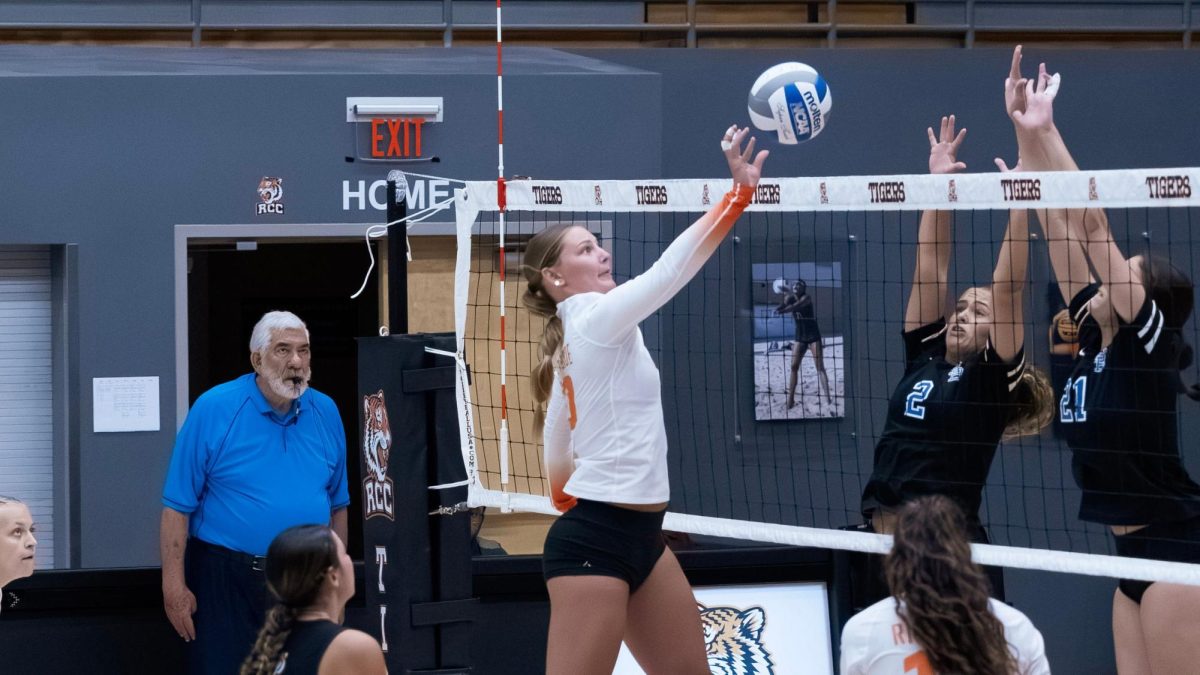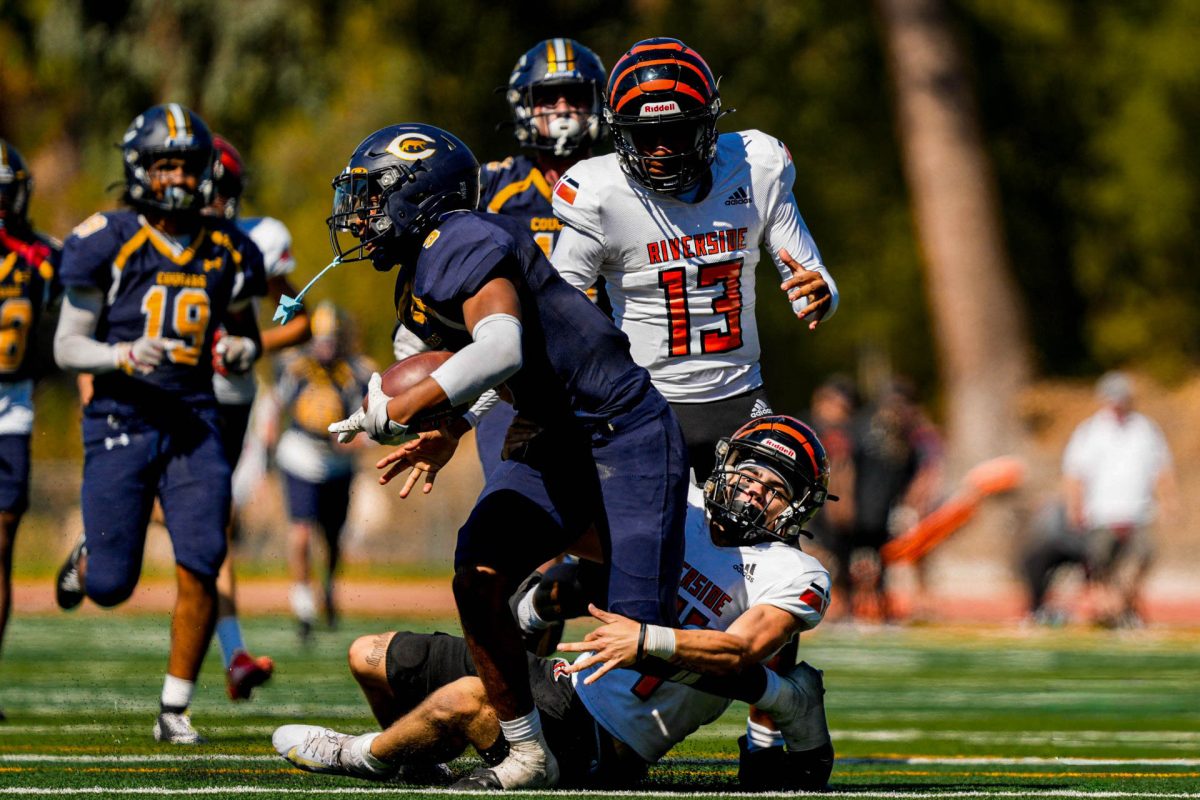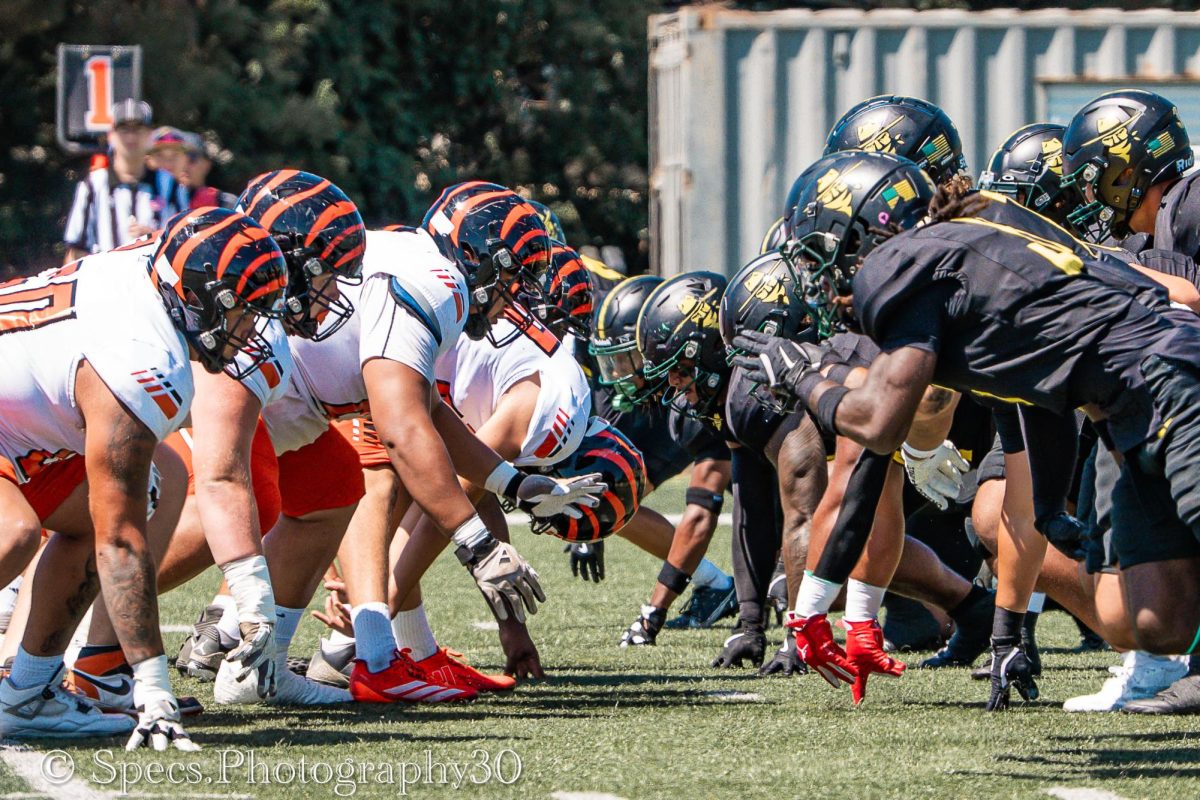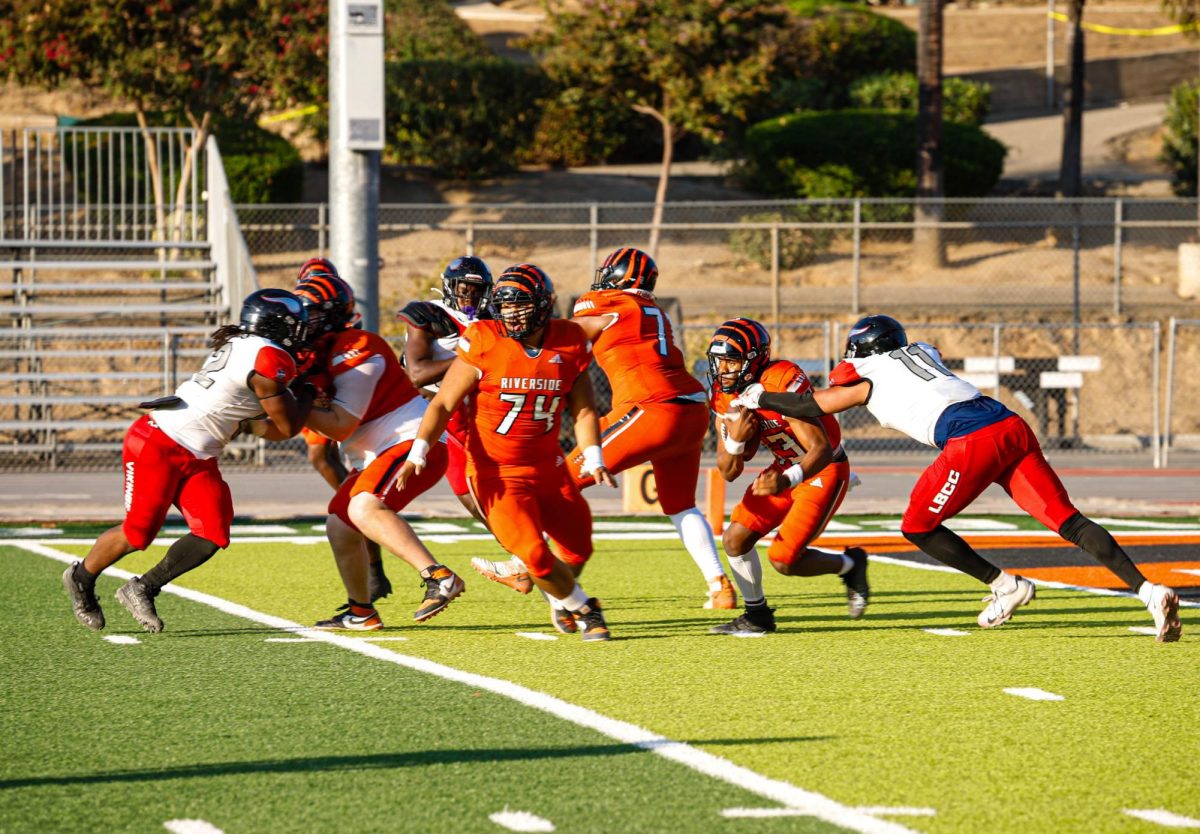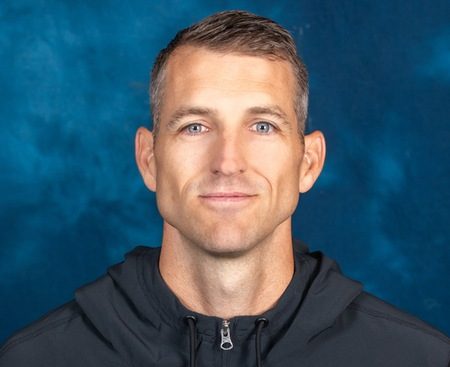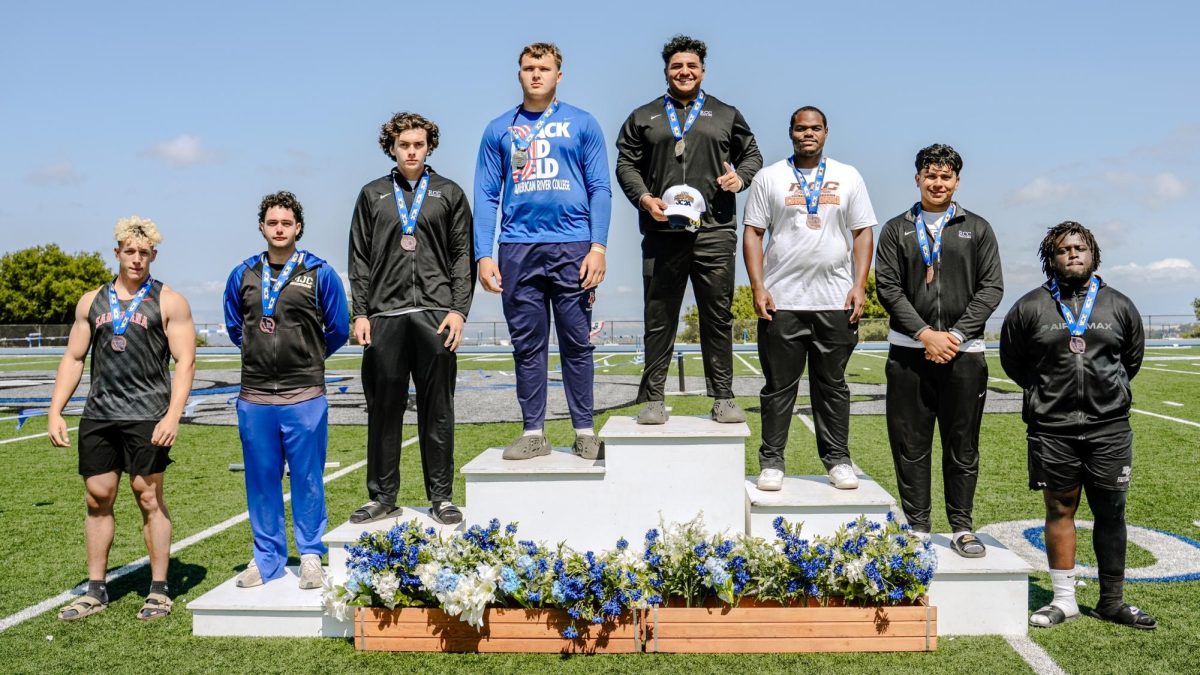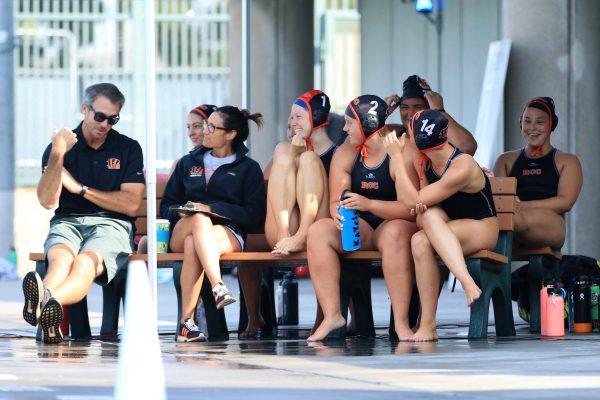
By Mya Castro
As Riverside City College’s athletic department jumps back into training and competition, the athletes, trainers and coaches understand that a healthy mind and body are the key to success.
Coaches and athletic trainers know that athletes must do their best to keep their bodies healthy outside of just attending practice in order to prevent injuries.
“If somebody is always injured, they’re never playing at their full potential,” Nate Swift, RCC’s athletic trainer, said. “If they take care of themselves and stay healthy, they just perform better.”
Along with Swift, many coaches also agree that bodily care positively affects an athlete’s performance.
“In general it’s important to prevent injury,” Clara Lowden, the women’s head volleyball coach and nutritionist, said. “If they (athletes) want to be at the top of their game, they have to stretch, eat right, sleep and do all the things they need to do to prepare for their sport.”
One of the best ways to prevent injuries is by conditioning. Most athletes are not the biggest fans of conditioning, but Swift believes that the more fit an athlete is, the better they play and healthier they stay.
“The better shape you’re in, the less likely you are to get hurt,” Swift said. “Now injuries still happen, but if you’re very healthy and fit, you are less likely to get hurt and you’ll be able to compete longer than say somebody who is a little out of shape.”
Conditioning doesn’t have to be full on cardio like many athletes believe.
“The best athletes train their small muscles just like they train their big muscles,” Swift said. “If they work on their balance, shoulder strength and their core stability that pays off long term.”
For many athletes, learning how to take care of their mind and bodies properly can be a struggle when they don’t know where to start. However, with an insight of the daily routine of Lauren Loffelmacher, a women’s water polo player, athletes may be able to take away some key ideas on how to keep their bodies in check.
“My team did yoga for the first time and it helped us stretch out after playing games for the past three weeks nonstop,” Loffelmacher said.
Stretching is one of the many tips Swift suggests for athletes to do in order to help their bodies recover.
“(Stretching) takes pressure off the lower back,” Swift said. “It takes pressure off of your hips, and it allows your body to move and be aware of it’s space when you’re more flexible and for most athletes it keeps injuries to a minimum.”
Along with using yoga as a way to recover, Loffelmacher also tries to fuel her body properly with food and water.
“I try to eat healthy which means I bring my own food to school to have between practices,” Loffelmacher said. “I drink lots of water to make sure I am hydrated.”
Lowden also believes that it’s important for athletes to have proper nutrition because it gives them energy.
“If an athlete were to eat McDonalds everyday, their performance wouldn’t be as strong because they wouldn’t have the right type of energy,” Lowden said. “If they eat proper nutrition, they’re going to get that energy, they’ll feel good, and their muscles and bones are going to be stronger.”
Sleep is another key piece of advice an athlete can get about taking care of themselves.
“I try to go to bed between eight and nine every night to make sure I am getting enough sleep,” Loffelmacher said.
Swift believes that sleep greatly affects an athlete’s performance and how their bodies recover.
“Fatigue plays a huge factor in injury, so sleep is the most important,” Swift said.







